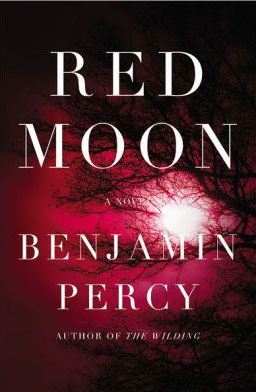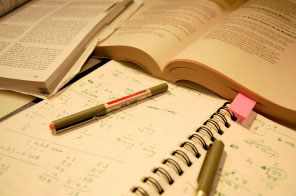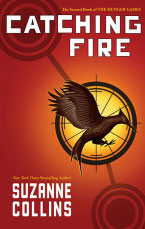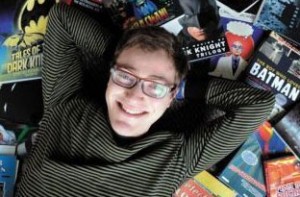 If you like a full moon and things that change with the tide, you’ll love this! I have enjoyed Red Moon by Benjamin Percy very much. I recommend this book for a great summer read!
If you like a full moon and things that change with the tide, you’ll love this! I have enjoyed Red Moon by Benjamin Percy very much. I recommend this book for a great summer read!
-Library Student Staff
 If you like a full moon and things that change with the tide, you’ll love this! I have enjoyed Red Moon by Benjamin Percy very much. I recommend this book for a great summer read!
If you like a full moon and things that change with the tide, you’ll love this! I have enjoyed Red Moon by Benjamin Percy very much. I recommend this book for a great summer read!
-Library Student Staff
 Did You Know? There are 18 study rooms in the library that accommodate 1-6 people. No reservations needed.
Did You Know? There are 18 study rooms in the library that accommodate 1-6 people. No reservations needed.
Have you ever wondered about the scale of the universe from the smallest microscopic entity up to the extent of our vast universe? Scale of the Universe presents this concept beautifully using simple illustrations, a horizontal slider, and minimal text. It spans 62 orders of magnitude: 35 orders of magnitude smaller than you, and 27 orders of magnitude larger. Here’s a quick sample of what you will find along the journey.
10-35 meter String, Planck length, quantum foam (not confirmed)
10-14.7 meter (10 yoctometers) proton
3 x 10-9 meter (3 nanometers) DNA
5 x 10-3 meter (5 millimeters) grain of rice
1.7 x 100 meters (1.7 meters) human
1 x 102 meters (100 meters) Redwood tree
1.27 x 107 meters (12,700 kilometers) Earth
1.4 x 109 meters (1.4 million kilometers) Sun
1.2 x 1021 meters (120,000 light-years) Milky Way Galaxy
1.27 x 1026 meters (1.27 billion light-years) Distance to the Hubble Deep Field, a seemingly empty spot in the sky near the Big Dipper for which the Hubble Space Telescope did a long exposure photograph in 1995 and discovered 1500 distant galaxies.
9.3 x 1026 meters (93 billion light-years) Radius of the Universe. The age of the universe is 13.7 billion years but it is expanding.
1.6 x 1027 meters (160 billion light-years) Observable Universe
The widely acclaimed ten-minute film Powers of Ten by Charles and Ray Eames (1968) is a narrated version of the same concept as Scale of the Universe.
Search the Collins Library catalog on the subject terms ‘cosmological distances,’ or ‘physical measurements,’ to find books and other resources on this topic. Here are a few titles to explore.
Submitted by Elizabeth Knight, Interim Science Librarian
 Writing a ‘happy list’ before the start of each day can help both stressed-out workers and students improve their problem-solving skills, a recent study has found. Read more!
Writing a ‘happy list’ before the start of each day can help both stressed-out workers and students improve their problem-solving skills, a recent study has found. Read more!
My name is Samantha Wilk, and I am a sophomore. I am majoring in politics and government, with a minor in environmental policy and decision-making and an emphasis in global development studies. I am from Washington, and next spring I will be going abroad to Copenhagen, Denmark. That still hasn’t sunk in yet—it’s less than a year away! I’m thinking about working with nonprofits after graduation, but I’m leaving my options open. I love to read, run—particularly outside when the weather allows it, and ride horses. I became a learning commons assistant the spring of my freshman year, and take care of the printers, reference books, and minor computer problems. I like being able to help people out and get them what they need, whether it’s a specific book or a printing problem. Another nice thing about my job is that I can do schoolwork when it’s quiet. Working in the library, I appreciate the fact that the library is always warm! It’s nice on those cold wet days that Washington excels in, and it is an excellent place to study.
 Cookies, by all rights, ought to be a permanent fixture in everyone’s life, and by extension, on all college campuses. In terms of versatility and aesthetics, it’s quite possible that no other baked treat quite reaches the same level of convenience, practicality, and simple beauty of the humble cookie.
Cookies, by all rights, ought to be a permanent fixture in everyone’s life, and by extension, on all college campuses. In terms of versatility and aesthetics, it’s quite possible that no other baked treat quite reaches the same level of convenience, practicality, and simple beauty of the humble cookie.
These cookies ought to be home baked, mind you. While there’s a comforting convenience in purchasing a package of Oreos or Chips Ahoy, nothing really can compare to the full experience of mixing the dough from raw ingredients and baking your own batches of perfectly not circular globs of cookie, one baking sheet at a time.
Gwen Phibbs, wife of former university president Phillip Phibbs, was well aware of this, and during her time with the University was kind enough to assemble a list of cookie recipes to be sold by the University Women’s League to raise money for scholarships. Stored in a box that contained other, considerably less delicious documents released by the Office of the President (It’s sadly difficult to find ways to prepare and eat back issues of faculty newsletters) the cookie recipes had remained hidden for more than 20 years, waiting to be uncovered.
Naturally, when they were, like an edible time capsule, the spoils of the plundered box were destined to be prepared once again.
While the original scheme began as a simple bake-off between the archives staff, events quickly ballooned to much larger proportions, and with a few emails sent down the line, soon nearly every one of the two-dozen odd recipes was assigned to a baker. In the end, close to 600 individual cookies were prepared, and summarily decimated during the event.
However, the real surprise was yet to arrive.
None other than former university President Phillip Phibbs and his wife, Gwen, the originator of the cookie recipes herself, arrived to judge the cookies of their worth. After choosing their own winners, the rest of the cookie bakers and eaters alike voted for a people’s choice, declaring two cookies that stood apart from the rest.
First place in the people’s choice vote were the Butterballs, baked by Laura Edgar, and followed closely by the Lemon Dream Bars, baked by Jane Carlin.
The favorite, as picked by both the Phibbs’, were the Energy Cookies, baked by Lori Ricigliano.
Congratulations to our winners!
And thank you to everyone who participated as bakers and tasters!
By Zebediah Howell
 Two librarians were featured in “Celebrating Scholarly and Creative Accomplishment by Puget Sound Faculty and Staff” at the April 24th Wednesday at Four meeting. Hilary Robbeloth showcased her work “Disconnect Between Literature and Libraries: The Availability of Mentoring Programs for Academic Librarians” published in Endnotes: The Journal of the New Members Round Table. Jane Carlin presented blog entries in the Huffington Post and “Anton Zwemmer: London’s Bookseller and Publisher for the Arts” published in Journal, Book Club of Washington, Fall 2012. Faculty publications will be on display in the cases in the front of the library until graduation.
Two librarians were featured in “Celebrating Scholarly and Creative Accomplishment by Puget Sound Faculty and Staff” at the April 24th Wednesday at Four meeting. Hilary Robbeloth showcased her work “Disconnect Between Literature and Libraries: The Availability of Mentoring Programs for Academic Librarians” published in Endnotes: The Journal of the New Members Round Table. Jane Carlin presented blog entries in the Huffington Post and “Anton Zwemmer: London’s Bookseller and Publisher for the Arts” published in Journal, Book Club of Washington, Fall 2012. Faculty publications will be on display in the cases in the front of the library until graduation.
 My favorite read is Catching Fire by Suzanne Collins, the second book from The Hunger Games. I am addicted to the thrill and excitement of these stories!
My favorite read is Catching Fire by Suzanne Collins, the second book from The Hunger Games. I am addicted to the thrill and excitement of these stories!
– Library Student Staff
 Come to the library and browse our collection of current newspapers and periodicals in the north reading room.
Come to the library and browse our collection of current newspapers and periodicals in the north reading room.
 Read this News Tribune article on Book Collecting Contest first place winner Ian Fox!
Read this News Tribune article on Book Collecting Contest first place winner Ian Fox!